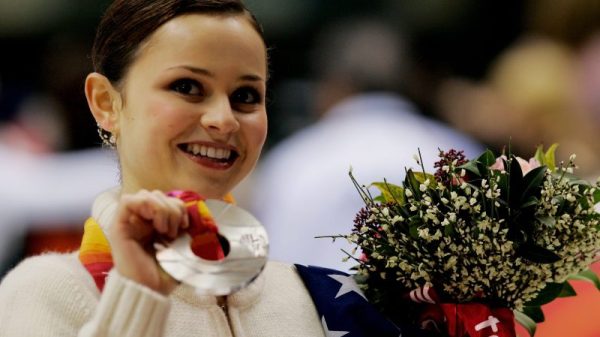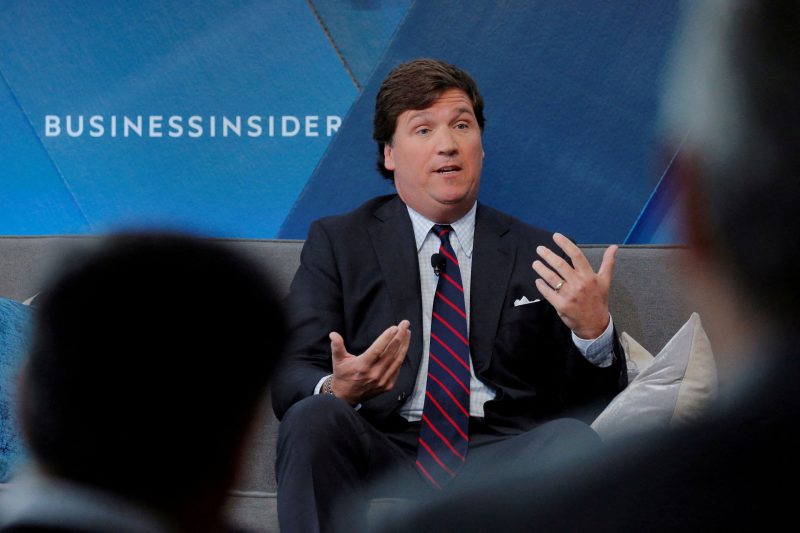When Fox News ousted host Tucker Carlson in April, it reportedly gave him what are known as “golden handcuffs”: In exchange for $25 million to buy out his contract, Carlson couldn’t take a gig in competition with his former employer.
That was apparently not enough. Carlson announced Tuesday that he intended to compete with Fox News, forgoing that money. At some point in the near future, he said, he’d be launching a daily show of some sort on Twitter.
Unlike most Americans — and certainly unlike the vast majority of the audience to whom Carlson spoke every night when Fox News was still his employer — Carlson has no need for that $25 million. In fact, there’s no indication that he’s receiving any compensation for launching a show on Twitter. The platform’s owner, Elon Musk, denied reaching any compensation deal with Carlson, who had also been offered lucrative gigs at Fox News competitors.
In other words, Carlson’s interest, at least over the short term, is not money but influence. The uncertainty that lingers around Carlson’s firing strengthens the idea that Fox News removed him out of concern that he was using their airwaves to amass power and influence for himself. That Carlson finds retaining that power to be more valuable than a $25 million paycheck suggests that he views his relationship with Fox News in the same way.
Carlson’s announcement of his new show — offered on Twitter, naturally — includes the sort of dishonest rhetoric his fans have long expected. For example, Carlson insists that the media at large is dishonest and manipulative, a perhaps not-unexpected viewpoint from a guy whose own assertions were repeatedly dismantled for their errors.
Even in that assertion, though, he revealed his perspective on his firing.
“The best you can hope for in the news business at this point is the freedom to tell the fullest truth that you can,” he claimed. “But there are always limits. And you know that if you bump up against those limits often enough, you will be fired for it. That’s not a guess. It’s guaranteed.”
As a long-standing member of the media myself, I can say that this is nonsense, that good-faith media organizations see no boundaries on telling the truth. Good-faith organizations like this one, and unlike Carlson, also regularly correct our mistakes, a commitment that in the modern era is frequently used against us.
But you’ll have noticed the subtext here: Carlson is obviously suggesting that he was fired because he was “bumping up against limits on telling the truth” at Fox News. What were those limits? Well, he spread false information about the war in Ukraine and about the Jan. 6, 2021, riot at the Capitol in the weeks before his firing (well, the months before his firing). Perhaps what he was actually bumping into was Fox’s limit on letting him spread misinformation.
He also framed his move to Twitter in the same way.
“As of tonight, there aren’t many platforms left that allow free speech. The last big one remaining in the world — the only one — is Twitter, where we are now,” he said. “Twitter has long served as the place where our national conversation incubates and develops. Twitter is not a partisan site: Everybody’s allowed here and we think that’s a good thing.”
When he says “everybody’s allowed here,” of course, he means that Musk has rolled back prohibitions on misinformation and reinstated various dishonest or abusive voices in keeping with right-wing complaints about the platform under its previous management. Musk is not a fervent free-speech advocate in the aggregate; Twitter has blocked criticism and censored competitors repeatedly during his tenure, and the company has reportedly turned over data in response to government requests far more often. Musk is, however, someone who will not get mad at Carlson spreading right-wing misinformation, so it meets both men’s definition of First Amendment compliance.
That Carlson is coming to Twitter isn’t only about this purported freedom, though. It’s also another manifestation of the bet he’s making on his own power relative to Fox News’s.
Consider an interesting question: Why was Carlson popular on that channel? He regularly beat the competition and his peers in the ratings, but why? How much of it was the lead-in from other Fox News programs and the channel’s built-in audience, and how much of it was Carlson himself?
By going to Twitter, Carlson’s explicitly testing that proposition. There’s not a lot of overlap between the natural audiences for Fox News and Twitter. In 2022, the median age of a Fox News viewer was 69. According to Pew Research Center’s 2022 analysis, only about 5 percent of active Twitter users were 65 or older. Fox News’s viewership also skews to the right politically, but most Twitter users are Democrats or Democrat-leaning independents — in keeping with the younger user base.
That may be changing, certainly. Musk’s efforts to embrace right-wing politics both personally and on the site are undoubtedly going to have a ripple effect on the population of users. I would be quite surprised, for example, if the partisan ratio of those who’ve signed up for Musk’s $8-per-month “verification” service are mostly Democrats.
Recent polling from YouGov shows the big gap in how much trust older and Republican Americans afford to news on Fox and on Twitter. More than half of Republicans say that Fox News is a trustworthy news source, compared to only a third of Democrats. But less than 3 in 10 Republicans say the same of Twitter. Those 65 and older are six times as likely to say they view Fox News as a trustworthy source of news than they are to say the same of Twitter.
That’s the bet, then: Can Carlson find an audience on Twitter that can compete with the one he had at Fox News?
This bet is made easier by the fact that his Fox News audience wasn’t that big. Yes, he won the ratings, but he only pulled in a few million people a night. His announcement video for his new Twitter show has already garnered 93 million views, according to Twitter’s public metrics — but that’s a two-minute, news-breaking clip. Can he generate the same interest on a regular basis? Do those metrics even accurately capture how much influence he’s having?
That question will prove essential over the long term. Carlson had increasingly used his show not to bolster Republican politicians (as Sean Hannity does regularly) but instead to mold them. A perch on Fox News with a guaranteed audience of millions of Republican-leaning or sympathetic viewers is a good way to do that. A Twitter show with murky metrics that requires more effort to watch than simply flipping on the living room television at some point before 8 p.m.? Perhaps not.
But this is the bet. Carlson thinks he is powerful enough to skip millions of dollars and move to a platform not heavily used by his existing fan base and still influence the political conversation. It’s a big bet, and a risky one.
It is also a bet that reveals what has long been apparent. Carlson’s announcement of his Twitter show was ironic in its excoriation of how the media tries to manipulate people. That, not informing his audience, was long his goal at Fox News. Whether he can do so as effectively in this new format remains to be seen.



























